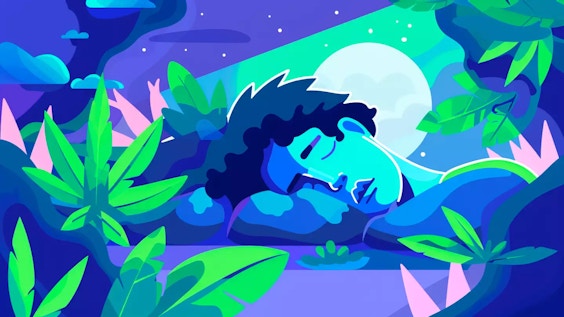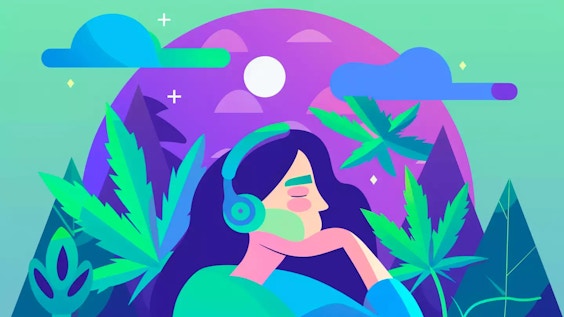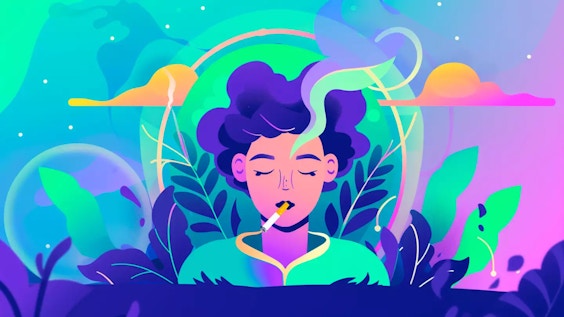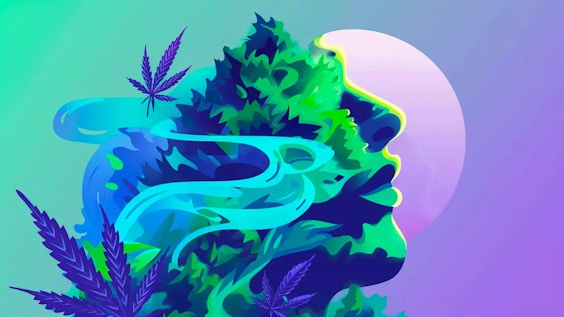I Am Sober is a free app that helps you get some control back in your life.
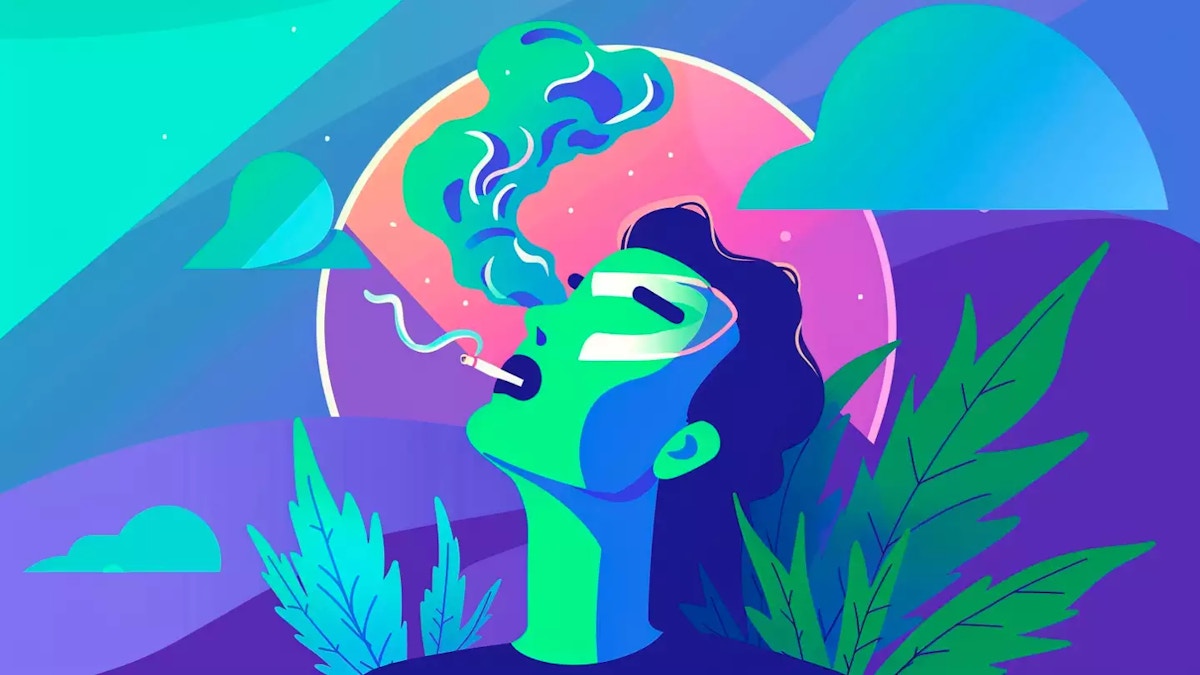
Marijuana and Anxiety
Last Updated: Fri, March 29, 2024THC can cause anxiety. Both those who suffer from anxiety disorders and those who don’t can experience anxiety, paranoia, and panic attacks from marijuana use.
There are many misconceptions about marijuana that still exist today. With so much research on cannabis, you would think we would have the facts by now. However, many people still believe the marijuana not only helps aid sleep, but also reduces anxiety. Neither one of these is true. It’s important to note that people can have different reactions to drugs, including marijuana. Some marijuana users may never experience a single feeling of anxiety or paranoia. However, they would be in the minority. Many people are under the impression that using marijuana is a long-term, sustainable treatment for anxiety. This is not the case. In fact, marijuana is known to increase feelings of anxiety. Here’s how and why:
How does marijuana affect my anxiety?
This question has a different answer for everyone. When it comes to marijuana and anxiety, it’s important to put marijuana users into two different categories: those who suffered from anxiety before starting to use marijuana and those who began suffering from anxiety after using marijuana. Those who have an anxiety disorder oftentimes self-medicate with marijuana because it can cause short-term relief. However, it increases feelings of both anxiety and depression when used regularly, especially after the THC wears off. On the other hand, some people experience anxiety immediately after using marijuana. Regardless of the cause of your anxiety, there are two main reasons why you may have those feelings after using marijuana:
-
THC: THC, the cannabinoid in marijuana responsible for giving users a “high” feeling, is the #1 culprit for causing anxiety, generally through causing paranoia. THC can increase heart rate and increase feelings of fear.
-
Overwhelming side effects: There are a plethora of side effects that someone can experience after using marijuana. Some of the most common are nausea, dizziness, and blurred vision. For someone who typically suffers from anxiety, all of these symptoms can exacerbate anxiety.
Is this different than normal anxiety? If so, how?
The answer to this question is both yes and no. While anxiety can manifest in different ways- increased heart rate, sweaty palms, racing thoughts- anxiety does not feel distinctly different when it is experienced as a result of marijuana. The root cause is simply different. For example, for some, anxiety only became a problem after they started smoking marijuana. Others have always experienced anxiety and their marijuana use simply exacerbated and intensified these feelings.
Anxiety is typically described as feelings of nervousness or worry about a specific incident. This can lead to overthinking and even physiological responses in the body. Those who experience anxiety after using marijuana may feel lightheaded, dizzy, tenseness in their body, racing thoughts, sweaty palms, accelerated heartbeat, and more. However, when anxiety occurs after using marijuana, there is no “specific incident” at the root of the anxiety.
How does withdrawal from marijuana affect my anxiety?
After withdrawing from most drugs, symptoms get worse before they get better. Most people who used to use marijuana regularly experience significantly worse anxiety right after quitting. In fact, this is why many people relapse after quitting marijuana. They believe that, because their anxiety is worse after quitting, using marijuana will keep their anxiety at bay. However, this is only a temporary solution- using marijuana only worsens anxiety in the long run. The majority of marijuana users experienced worse anxiety for the first two weeks after they quit. However, anxiety levels slowly decreases after this period.
When will my anxiety start to improve in sobriety?
After you quit marijuana, it can take quite some time, often over a month, before anxiety decreases. Most people notice the most significant decrease in anxiety around the six-month mark.
What are ways I can improve my anxiety?
Anxiety is a feeling that everyone experiences at one time or another. When you are stressed or worried about a situation, you may experience an increased heart rate, sweaty palms, and other typical anxiety symptoms. However, for normal people, this feeling passes fairly quickly. For those who have an anxiety disorder or who are detoxing from drug use, anxiety may be a more constant feeling. With that being said, there are several tips and tricks to help alleviate anxiety. Here are some of the most effective ways to improve your anxiety:
-
Practice deep breathing: Deep diaphragmatic breathing can spark the transition from sympathetic nervous system- where feelings of anxiety sprout- to parasympathetic nervous system- where feelings are calmer.
-
Exercise: Exercising releases endorphins and anandamides, which combat feelings of anxiety.
-
Avoid caffeine: Caffeine stimulates the central nervous system, which can trigger feelings of anxiety.
-
Get enough sleep: When our bodies don’t get enough REM sleep, we can experience feelings of stress, anxiety, and depression.
-
Make time for soothing activities: Taking a walk, listening to music, taking a long bath or shower, or reading a good book can all help keep our bodies calm and our minds on other things.
-
Focus outward: Anxious, self-preoccupied ruminations decrease when we focus on others.
-
Get treatment: Many effective treatments for anxiety exist. Seek out an anxiety disorder specialist.
Many people self-medicate for mental illness with marijuana. Whether they suffer from depression or anxiety, they find immediate relief when using substances like cannabis. However, while they may feel better in the short-term, using marijuana can do far more harm than good in the long-term. Long-term marijuana use has been linked with decreased memory, decreased IQ, decreased overall quality of life, apathy, psychosis, anxiety, and depression. Some marijuana users have feelings of anxiety develop after they have been using the drug for some time. For others, the anxiety existed before they began using marijuana and was only intensified when high on the drug. Either way, the links between marijuana and anxiety are indisputable.
More resources:
I Am Sober is a free app that helps you get some control back in your life.

